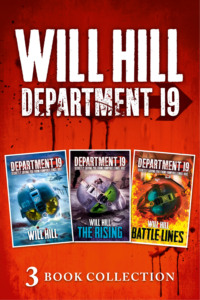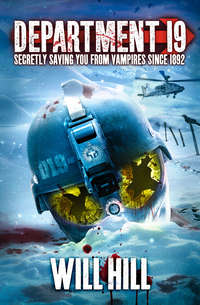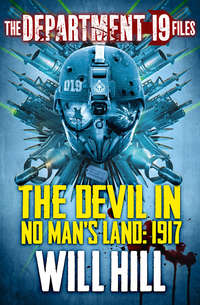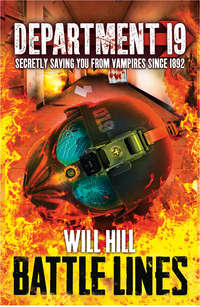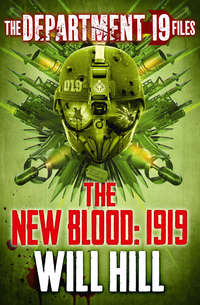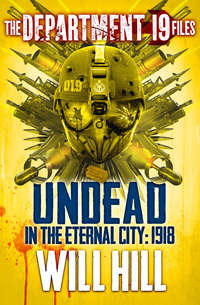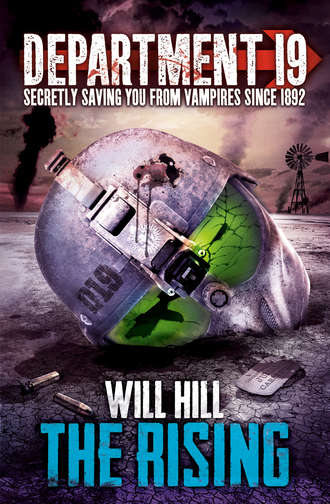
Полная версия
The Rising
In the kitchen, Matt poured himself a glass of water and leant against one of the counters. He doubted that anyone in the world knew as much about vampires as he had learnt in the two months since he had been returned home.
Matt knew, as he sat in the back of the car with the blacked-out windows that was taking him home, that the first few moments of his return were going to be crucial. If he was going to be believed, if his parents were going to accept, as the doctor at the base had, that he could remember nothing of what had happened to him, then he was going to have to play his hand perfectly.
The doctor was so pleased with his recovery from the coma that his apparent amnesia had been almost an afterthought. Tests were carried out, a great number of them, but Matt realised quickly that the doctor had been convinced that he would emerge from his coma with significant brain damage, and that lent him the courage to lie with conviction. He picked a point four days before the incident in his parents’ garden, and stuck resolutely to his claim that he could remember nothing since then. He feigned frustration, and concern for the state of his memory; he summoned tears of apparent confusion and fear, while the doctor had held his hand and told him it was all going to be all right.
There was one brief, terrifying moment when the nurse suggested a polygraph test to assess whether there might be recoverable memories, to check whether, in effect, Matt was lying without meaning to. But the doctor rounded angrily on her, and told her that the boy had been through enough. The nurse, chastened, apologised for the suggestion, and Matt breathed a little easier.
He stood on the doorstep of his parents’ small house for several minutes, the letter he had been told to give them in his hand, as he prepared himself to give his performance. Then he rang the doorbell, and waited until his father answered. In the end, very little was required of him; he had barely begun a stuttering, rambling apology when his father interrupted it by wrapping him into a crushing bear hug and dragging him inside the house.
Greg Browning carried him into the kitchen, set him down, then flopped into one of the battered plastic chairs. His eyes were bulging and he was clutching at his chest, and for one terrible moment Matt was sure his father was having a heart attack. Then a great sob burst from Greg Browning’s mouth, and the tension in his body evaporated as he began to cry. He grabbed for the phone, tears pouring down his cheeks, his gaze fixed on Matt as he found the handset and dialled a number with trembling fingers; it was as though he feared that if he averted his eyes for even a second, his son might disappear again. Then a voice answered the phone, and Greg’s face had crumpled into a blubbery mess of tears and snot as he told his wife that their son had come home.
Matt’s mother arrived the following morning, on the first train west. Matt assumed, although he didn’t say anything out loud, that she and his father had been fighting, and his mum had gone to visit Matt’s aunt in Sheffield. She carried his sister through the front door, yelling Matt’s name until she saw him, and fell silent. The look on her face was indescribable, to Matt at least; the sight of it had brought instant tears to his eyes. Then his mum started to cry as well. She put his sister carefully down on the sofa, then wrapped her arms round him so tightly that he wondered whether she was ever planning to let him go.
That evening, the three of them sat in their front room, and had the only conversation they would ever have about the night he had been lost. Sticking to his story was easy; his parents were so overcome with relief that he had been returned to them that they never even entertained the thought that he might know more than he was saying. When they were finished talking, Matt’s dad silently handed him the letter he had brought home with him.
“You should see this,” he said.
Matt took it from his father, unfolded it and read it.
Mr and Mrs Browning,
The incident in which your son sustained injury remains a matter of the highest national security. You are hereby instructed not to discuss the incident with any other party; doing so will be considered an act of treason, and appropriate action will be taken. Acceptance of this letter constitutes acceptance of this instruction.
Your son has received all appropriate medical care, and his recuperation is progressing well. If he develops further medical problems, you should inform medical personnel that he suffered a myocardial infarction due to sudden rapid blood loss. You should not discuss with anyone the circumstances surrounding his injury.
Matt handed the letter back to his father, and told them he was going to bed. And the very next morning, his parents began the long process of trying to forget that any of it had ever happened.
He didn’t even blame them, not really; the girl, the helicopter and the men in the black uniforms holding guns did not fit into the small lives his parents had carved out for themselves in their quiet corner of the world. He supposed they had known, in some abstract way, that there were things out there beyond the end of their suburban street that were wild, and dangerous, that might defy explanation, but they had been perfectly happy for such things to stay where they were. Football, and reality TV, and lager, and celebrity magazines – these were things they could understand, could hold on to and relate to. Not girls who healed before their eyes, then tore their son’s throat out on their back lawn, before soldiers told them it had never happened, the implicit threat obvious to all.
The darkness the world contained had been thrust upon them; they had not looked for it. And now that the darkness had receded, now that their son had been returned to them and they had been able to largely rebuild the lives they had been living before, they were gradually allowing themselves to believe it had never happened at all. He understood their position, and didn’t judge it. It was fine for them.
It was not fine for him.
Matt’s brain swooped and swirled round new ideas, gravitating hungrily towards anything he didn’t know; it was an all-consuming thirst for knowledge, for all knowledge, from how his mother’s Dyson worked to what would happen if you were able to stand on the event horizon of a black hole. In his mind, there was no distinction between the two; knowledge was knowledge, every bit of it as valuable and satisfying as the next.
To call him intelligent would be insufficient; Matt Browning was possessed of an intellect so powerful it would technically be classified as genius. He was as skilled at hiding this intelligence from his family as he was from the bullies at school, who he knew would target him even more viciously if he revealed how much cleverer he was than all of them. He yearned for a time, which he fervently believed would one day come, when he would no longer need to hide who he was, when his intellect would be admired rather than reviled.
Without his parents’ knowledge, he had submitted an application to Cambridge the previous autumn, and received an unconditional offer to attend after a phone interview he had also kept secret. He was due to begin his studies in less than a year, and it had become the only thing that mattered to him, the only thing that kept him getting out of bed every morning. Until the girl landed in their garden, and he woke up in a hospital bed, with his throat bandaged and his head full of vampires.
He was now consumed by a burning need to understand what had happened to him. It felt like his entire view of the universe had suddenly been revealed to be a peephole in a hotel room door, a door that had suddenly been flung open in front of him, making him realise how tiny his understanding had been, how small his world really was.
From an encyclopaedia page he learnt about the origins of vampire mythology, learnt the cultural and social theories that had been applied to the idea of such a creature in the centuries since Bram Stoker had crystallised the legends and folk tales of eastern Europe. He read scientific theories, proto-feminist theories, theories of vampires as a metaphor for AIDS, deconstructionist theories, Freudian and Jungian theories, and an American professor’s theory that vampires represented the nascent anti-Semitism in the western world.
He read Dracula, marvelling at its epistolary structure even as the story thrilled him; he held his breath as Van Helsing staked poor doomed Lucy Westenra, as Renfield’s madness offered clues to the Count’s whereabouts. He felt his heartrate surge as the heroes chased Dracula into the Transylvanian mountains, felt triumph as the evil monster was stabbed through his undead heart, and a terrible sense of loss as Quincey Morris made the ultimate sacrifice for the sake of his friends.
He read what felt like hundreds of adolescent vampire websites, where teenage girls called themselves Raven and Bloodwynd and wrote excruciatingly lustful prose about pale, mysterious, uniformly beautiful boys who could make them live forever with a single kiss from their wine-red lips.
He read blogs by people who genuinely believed they were vampires, people who claimed to drink blood and eat no food, who claimed to be able to influence people and animals to do their bidding, and even on occasion claimed the ability to turn into a bat or a wolf. These had piqued his interest for a short while, until it became clear that in almost every case the author was either desperately lonely or mentally ill, in some cases obviously quite severely.
He read dozens of websites created by people who believed vampires were real, believed it with such longing and such desperate hope that he found their sites almost painful to read. He scoured page after page of alleged sightings, of shadows in graveyards and alleyways, of people who appeared to be casting no reflection in a shop window at night, of neat pairs of circular puncture wounds, of strange men and women with pale skin who appeared to float above the ground.
He read, and read, and read, and he found nothing that in any way resembled what had happened in his garden, or the place he had spent a month of his life.
Matt finished his water and placed the glass on the draining board. He was physically exhausted but, as usual, his brain would not stop whirring. He was sure that somewhere out there was what he was looking for, something that would reinforce what he had been through; he just had to find it. He would get some sleep, and start again in the morning.
He walked back up the stairs and into his bedroom. His computer monitor glowed in the dark, and he was about to reach over and turn it off when he saw an instant messenger box in the bottom right corner of the screen. He clicked on it, watched it expand into the middle of the monitor and read the contents.
Sent by: Anonymous At: 23.52 GMT Subject: http://23455.998.0904.3240.com EH87989KMD090Matt’s heart leapt in his chest. He quickly clicked REPLY, but whoever had sent the message was no longer online. He clicked the link in the subject line, and his browser filled the screen, loading a white page with four lines of text and a grey box with a SUBMIT button next to it. He read the text, trembling slightly with excitement.
ATTENTION: If you have arrived at this page in error, please click BACK on your browser immediately. If you have been directed to this page, do NOT submit your password. Leave this page immediately, enter the URL into an IP masking service and then enter your password.
Matt could hardly contain himself.
This was the most promising lead he had found in almost two solid months of searching, a page that told you to hide your whereabouts before entering it, that insisted you leave if you had not been invited.
Why would they want us to hide our IP addresses, unless they’ve got information they don’t want anyone to be able to trace?
Matt closed the window, then opened a new one and typed in the URL of a site that allowed you to browse the internet under a fake IP address; he had used it in the past to watch TV shows that were restricted to the US, and within a minute he was safely behind a dummy IP that would make him appear to be a user from Charlotte, North Carolina. He pasted the link from the message into the browser and hit ENTER. The same white page with the warnings and the empty white box appeared; this time he entered the string of letters and numbers that had been sent to him, clicked SUBMIT and waited. The page loaded, and Matt audibly gasped in the darkness of his bedroom.
The site that opened up in front of his eyes had no title, had wasted no time on fancy designs or technology, but its purpose was immediately obvious; it was a site devoted to the belief that vampires were real, and at large in Britain. At the top of the page was a greeting, and a warning.
Welcome. If you are here, it is where you are meant to be.
We recommend that you vary the IP masking service you use, and delete your browser’s history and cache each time you visit us. It is no exaggeration to say that they are watching – it is up to you to minimise how brightly you appear on their radar. Click here to learn more about Echelon, and how you can work around it.
Matt was about to click on the link, when he noticed the headline in the site’s main panel, and a chill ran through his body. Below the greeting was a menu, simple black text on a white background, like the rest of the page.
HISTORY SIGHTINGS COVER-UPS THE MEN IN
BLACK ETYMOLOGY PROTECTION
Beneath the menu were a headline, a short article and the top few centimetres of a photograph.
MEN IN BLACK CAPTURED ON FILM?
Is this the first real photographic evidence of the existence of the men in black? It was sent to us by an anonymous source, on the same date we received a number of reports of vampire activity in north-west London. Note the purple visors, and the unmarked uniforms and vehicle.
Matt scrolled quickly down to look at the entire photo. What he saw made him feel like crying.
The photo was blurry; it looked like it had been taken with a long lens by someone in a hurry, someone who didn’t want to be seen with a camera in their hand. It showed a nondescript suburban street at night, the rows of houses almost identical to one another, the cars parked in front of them Japanese and German, the gardens neatly tended. It had been raining when the photo was taken; water was running along the kerbs and rushing into a drain opening.
In the middle of the frame was a black van, parked in front of a driveway and directly under a streetlight, its rear doors open. Matt squinted at the photo and saw that the article’s author was correct; he could not see a licence plate above the vehicle’s rear bumper. Beside the open doors were three figures, and it was the sight of two of them that had sent a great wave of relief pouring through him.
They’re real. It was real. It all really happened.
Two of the figures were dressed all in black, a matt material that didn’t reflect the amber glow of the streetlight. They were wearing black shapes on their heads, and both had an unmistakable blob of purple where their faces should have been.
Visors. Purple visors.
The two black shapes were pushing the third, a scrawny figure wearing jeans and a white T-shirt, into the open doors of the van. The third figure didn’t seem to be struggling; Matt looked closer, then drew in a sharp breath. The black figure nearest the camera had something in its right hand, a dark oblong that was pressed between the shoulder blades of the person being loaded into the van. He scrolled down, but there were no more pictures. Matt let go of his mouse, sat back in his chair and put his hands over his face.
It had really happened. People knew.
The photo on his computer monitor was blurry evidence that he hadn’t lost his mind, that it hadn’t all been some vivid coma dream. No matter what his parents were allowing themselves to believe, he knew now that he was right.
It was real. Which meant the boy who had spoken to him after he woke from his coma was real. And now he had found the first step on the path to a wider world.
Matt clicked on SIGHTINGS, and began to read. The experiences, page after page of them, bore such similarity to his own that he almost began to feel annoyed that so many other people had grasped at the edges of this strange world; it seemed to render his own experience less unique. He chastised himself for such petulance, and read on.
The details of the accounts were different, as were the locations; they came from as far afield as Dover and Aberdeen, and almost every part of the British Isles in between. There were reports from several European countries, of similar figures operating in Romania, France, Germany and Hungary. But in all cases the key points remained constant: figures dressed all in black, their faces covered by purple visors, unmarked black vans, helicopters where no helicopter should ever be seen. And they all ended in the same way, with a warning to tell no one what they had seen. Matt shivered at the memory of the last thing the men in black had said to his father, as his own blood pumped out across his chest.
This never happened. Do you understand?
He understood all right. But he no longer cared. Because it had happened, and he was damned if he was going to pretend otherwise. He scrolled back up to the greeting at the top of the page and clicked the link in the final sentence. A new page opened, a short paragraph followed by an incredibly long list of words.
THE ECHELON MONITORING SYSTEM
The British government, along with every other government in the world, monitors electronic communication between its citizens. This is NOT speculation, or paranoia; this is standard military and security service procedure. Emails and mobile phone calls are run through powerful computers and scanned for words that feature on a flagged list, a list that is updated on a daily basis as new threats emerge. Below is the most recent list of Echelon flagged words that we have. Be aware that just because you do not see a word on this list does not mean it has not been flagged. For safety, only communicate sensitive information in person or via landline telephones. And be aware that even those methods are far from secure if the government decides to take an interest in you. Keep your ears open.
Matt scanned the list quickly. Most of the words on it were what he would have expected, overtly provocative phrases like bomb, plot, cell, jihad, terror, martyr, suicide, Afghanistan, Al Qaeda. But interspersed among the obvious words were several that seemed out of place, unless you had seen the things that Matt had seen: purple, black, visor, uniform, teeth, flying, bite, throat, blood…
Vampire.
The word was there, in black and white. Matt said it out loud, letting it roll off his tongue, as he had in the quiet of the infirmary when the doctor had left him alone.
“Vampire. Vampire.”
A grin spread across his face; the tiredness that had been threatening to overwhelm him only five minutes earlier was gone. He felt energised, like he had put his finger against a live wire. His skin was prickly, and his brain was fizzing with new questions and ideas.
One idea in particular.
He settled into his chair to read the rest of the site, knowing deep down that he had already decided what he was going to do.
10
SLEEPLESS NIGHT
SOUTH OF GUDENDORF, LOWER SAXONY, GERMANY ELEVEN WEEKS EARLIER
Greta Schuler tiptoed down the staircase of her family’s farmhouse, taking care to avoid the third-to-last step, the one that always creaked. Her sleep had been fitful, full of bad dreams, and for an unsteady, wavering moment she had been unsure whether the noise she had heard had been real or imagined. But then it had come again, a deep rumble from the direction of the north field, and she sat upright in her bed, drawing the covers round her.
It was cold in her bedroom; she could see her breath in the air. She waited for the noise to come again, and when it didn’t, she climbed out of bed, crossed the cold wood of her bedroom floor in her bare feet, pulled on her boots and her thick woollen coat and set out to investigate. For a second or two, she considered waking her parents, but decided against it; days on the farm were long and tiring, and they needed their rest. And besides, Greta was almost twelve years old, and a country girl; she had run off countless stray dogs and foxes, and even the occasional wolf.
At the foot of the stairs she eased her father’s shotgun out of the umbrella stand that stood beside the heavy front door, took the battered black torch down from the shelf on the wall, then gripped the brass door handle and slowly, centimetre by centimetre, pulled it towards her. The door creaked once, ominously loudly, then settled, and slid open. A blast of cold air whistled through the gap between the door and its frame and Greta shivered, her skin breaking out in gooseflesh. She pulled her coat tighter round herself, and slipped out into the night.
On the doorstep she broke open her father’s gun and checked that it was loaded. She saw the bronze discs and red tubes of the cartridges lying in place, snapped the gun shut and looked around the wide farmyard that lay before the house. Snow covered every centimetre of the ground, shining silver beneath the light of the full moon that hung in the night sky above her head, light that illuminated a long streak of something dark. It ran across the yard, from the thick woods bordering the gravel track that led to the main road, to the wooden gate of the north field that stood beside the farmhouse. Greta stared at it, feeling fear crawl momentarily into her stomach before she pushed it away, then flicked on the torch and stepped forward.
She gasped as the beam fell across the streak. In the yellow light of the torch, it glistened a dark, shiny red. She could see steam rising from it, tendrils of pale mist spiralling up into the night sky, and she knew immediately what she was looking at.
Blood. A lot of blood. Freshly spilled too.
Fear rose through her, and this time she was unable to make it retreat. But she did not go back inside to wake her parents, even though she knew she should. She was her father’s daughter, stubborn and fiercely independent; she would not ask for help unless it was absolutely necessary, and she would rather die than admit there was anything that frightened her. So she stepped away from the door, her boots crunching the thick snow beneath her feet, and headed towards the north field.
As she approached it, the torch beam wavering unsteadily before her, she saw that the heavy wooden gate was standing open; the snow at its base was swirled into drifts and ridges, and smeared thickly with blood. The smell of the steaming liquid hit her nose as she leant in to look at the gatepost, and she retched. The heavy chain that was slung round the post every night by the last farmhand to leave was lying in the snow, its links bent and twisted open. As Greta shone the torch into the field, her heart beating rapidly beneath her narrow chest, she forced herself not to think about how much strength it would have taken to bend steel as though it was cardboard.
Her torch beam picked out a large shape on the far side of the field. She stepped through the gate, taking care not to stand in the cooling red liquid, and headed towards it. She was halfway across the field before her torch cast enough light for her to realise what she was looking at.
The cattle that grazed the north field were huddled together in its furthest corner, packed tightly together like sardines. Greta, who had been around livestock since she was old enough to stand, had never seen anything like it before. The animals were shifting constantly in the cold night air, taking half-steps backwards and forwards, their heads up, their eyes wide discs of white. As she approached, the herd let out a long, deep rumble of noise, and she stopped.


